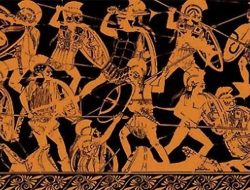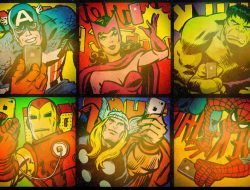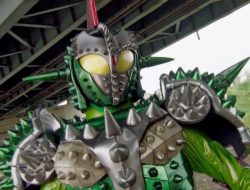In 1998, Squaresoft (now Square Enix) released Parasite Eve, a curious blending of elements from RPGs and survival horror games that were all the rage at the time. It’s frequently remembered for the portrayal of its main character, Aya Brea, a tough-as-nails NYPD detective and the unparalleled opening act where the audience at an opera mysteriously bursts into flames.
The most memorable aspect of the game to me though is its convoluted sci-fi storyline. The antagonist, Eve, is granted her powers by her mitochondria, which have decided to rebel and break free of their human masters. She has the ability to mutate on command in the glorious tradition of biology-gone-wrong videogame monsters and even has control over the mitochondria of others. But how plausible are the things that are presented in the game? Now that I’m a real, grown-up scientist, I thought it would be fun to take a trip down memory lane and try to figure that out.
What are mitochondria?
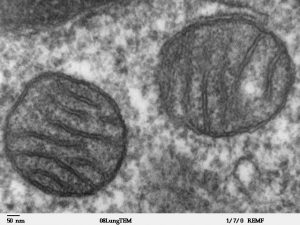
I’m going to go all biology nerd on you for a minute. You will have to trust me that his information will come in handy soon. Mitochondria are the powerhouses of your cells. They are the main producers of ATP, the molecule that is responsible for providing most of the energy that the body needs to do, well, just about everything. Mitochondria aren’t just one-trick ponies though – they are involved in many other processes including the rate of cell growth, how a cell ultimately turns out (skin vs heart, for example) and cell death. In short, they are very important organelles (literally, little organs. Organelles are to cells what organs are to your body).
I’m going to focus on three major claims and events from the game: whether humans can spontaneously combust due to mitochondrial activity, the origin of mitochondria as explained in-game, and the potential for mitochondria to rebel and take control over our actions.
Is spontaneous human combustion caused by mitochondrial activity possible?
Eve has the ability to make living beings around her burst into flames. In the game, this is explained as her having control over their mitochondria. Dr Klamp, the villainous scientist who is on Eve’s side, says that Eve is essentially commanding the mitochondria to become hyperactive. I’ll let Dr Klamp make his case directly, “[A] tremendous amount of energy would be generated and released. Melting a human into a puddle of fluid would be a simple task…”
Thank you for the explanation, Herr Klamp. Unfortunately, I don’t think you have it right. True,hHeat production is a side-effect of making ATP. And independent of that, the mitochondria are involved in a process known as thermogenesis, which as you might have already guessed from the name, is the catch-all term for how the body produces heat. So can the mitochondria produce enough heat to set the body on fire? Highly unlikely. It takes a tremendous amount of energy to burn a human body. Crematoriums need fires of 1600 degrees for a few hours to reduce a body to ashes. But wait, I hear you say, all we are concerned with is ignition. Yes, we all have fat and methane gas but the human body is still largely water. That presents a huge barrier as water acts as a heat sink and will absorb most of the energy produced by the mitochondria.
tl;dr
No.
Are mitochondria organisms separate from us?

Parasite Eve claims that mitochondria are their own organisms and that through Eve’s actions “[they] would…be set ‘FREE’ ” of our tyranny. What the game is alluding to is the theory that our single-celled ancestors performed a hostile takeover of the worst kind and swallowed some bacteria, which were forced into becoming energy-producing slaves. Over billions of year, these bacteria have become what we now call mitochondria. To put it mildly, this claim sounds a little far-fetched. Colonialist cells? Is that even possible? Well, all the evidence we have so far says yes actually.
Mitochondria have their own DNA. This might not seem all that interesting until you consider that no other organelle have their own DNA. That’s because they shouldn’t need their own DNA; yours should supply them with all the instructions that they need. When scientists took a closer look at mitochondrial DNA, they found other things that were pretty surprising. Human DNA is packaged using proteins in a very intricate fashion in order to make it all fit into the nucleus of the cell. Bacterial DNA usually just hangs out naked, so to speak. Guess what mitochondrial DNA looks like? Mitochondria can also make their own proteins using cellular machinery that again resembles that of bacteria.
tl;dr
They most likely started out as separate organisms but now we need them as much as furries need their costumes.
Can mitochondria rebel and turn us into puppets?
“[H]umans just served as transportation vehicles …to transport us to the time the mitochondria would become free again. But you see, the “vehicle” is no longer needed anymore. From now on, the mitochondria will become human beings and will RULE this earth!”
At first blush, it might seem ludicrous to ascribe will to an organelle. It does make for a great story to have a microscopic enemy within our cells plotting to take over and gain control over our body and mind but that’s undoubtedly the stuff of science fiction. Even if we hold the view that they are not so much organelles as bacterial symbiotes, the idea is ridiculous. Right…?
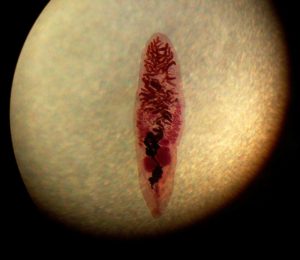
Let’s consider the life-cycle of Dicrocoelium dendriticum, a parasitic flatworm most commonly found in sheep, cattle and other grazing mammals. It starts off in juvenile form in snails, is next found in ants and reaches adulthood in sheep. Transmission from snail to ant was simple enough: in an attempt to get rid of the immature worm, snails excrete it in their slime, which ants use as a source of moisture. But how does D. dendriticum get from ant to sheep? Sheep don’t usually eat ants because they feed on the tops of grass while ants remain on the ground. It turns out that D. dendriticum migrates to a cluster of nerves underneath the ant’s esophagus and gains control over these nerves. As night approaches, the parasite makes the ant climb to the top of a blade of grass where it clings until it’s eaten by a grazing animal. If the ant is not eaten by dawn, it climbs back down (it’s not so fond of direct sunlight) but repeats this suicidal mission every night.
The story of D. dendriticum is rather unusual but by no means unique. For example, there’s Toxoplasma gondii, which makes host rats find the scent of cats attractive and Galactosomum, which is mentioned in Resident Evil 4 and causes infected fish to swim close to the water’s surface and flash their underbellies, actions that make them more visible to birds that prey on them.
Are you paranoid yet? While the stories above are interesting and make for good party conversation (…just me then?), we don’t really have anything to fear from mitochondria. The way those parasites affect their hosts arose from millions of years of evolution. Mitochondria have been with us for billions of years and if there was selective pressure favoring parasitic mitochondria, we probably wouldn’t be speculating about it right now. In fact, we’d be living it. That said, in many ways, mitochondria are already in charge because we couldn’t survive without them. But the flipside of this is that they can’t live without us – since they first became part of our cells, mitochondria have lost many of the genes essential for life and rely on our DNA to make up for that deficiency.
tl;dr
Only in science fiction although there are parasites out there that can do some pretty amazing Jedi mind tricks.
Am I completely off my rocker? Let’s discuss this in the forums.
Tags: 2011, geeky, nerd passions, parasite eve, Science, square enix, under the microscope, videogame

